#Truth Ali
Explore tagged Tumblr posts
Text
There is a nebulous jordie lives au which lives entirely in my head in which jordie recovers from the plague while Kaz is still sick. He gets up to find them food and water only to return and discover Kaz is nowhere to be found. Still recovering from the fever, he searches the barrel for days before he finally sees Kaz wandering down the staves in a sort of fugue state, soaked to the bone with a haunted look in his eyes.
Kaz won’t tell him what happened, but jordie knows it’s bad because his baby brother flinches every time he touches him, and soon enough he’s started wearing gloves, even in the height of summer.
Soon, they discover kazs gift for cards, and it keeps them fed and clothed, if not much else. Kaz is angry at jordie for losing the money, refuses to let him make any decisions. Jordie is beholden to his angry traumatized little brother because he can’t deny that he failed them the first time around.
Kaz is offered a place in his pick of the gangs, but the only one willing to take both him and his tag along older brother is the dregs. Jordie dies a little bit inside when they join up, when they take the tattoo side by side, but he’s not sure they’ll survive another winter on the streets.
And the plot of SoC generally goes on from there. Jordie tags along on the ice court, he and Jesper test kazs patience at every turn, he’s constantly offering unsolicited annoying older brother advice about Inej.
This lends itself to a really interesting exploration of Kaz and jordies relationship, what holds brothers together in the face of incredible trauma, the skewed power dynamic of Kaz becoming the breadwinner for them both at the age of nine, etc etc. But mostly, this au is a vessel for the sailing of the ultimate crack ship, which is of course, jordie/alys Van Eck.
#grishaverse#six of crows#jordie rietveld#kaz brekker#sorry. but I must speak my truth.#idk I’m hugely compelled by the idea of barrel boy jordie and sheltered housewife alys falling madly in love.#Kaz is trying to scheme them out of this whole mess and jordies like hey. do you think it would be okay to kidnap her again. like morally.#it’s just that I’ve thought of some really good jokes that I think she’d like. and Kaz (who has had negative sleep) just glares at him#also Kaz becoming uncle Kaz to Van Ecks new heir? truly the comeuppance Van Eck deserves#also yeah obviously the kaz jordie angst of this au compels me but make no mistake. it’s about jordie/alys#again. sorry.
477 notes
·
View notes
Note
Hi hello dear!
Do you have any hc of Adler if he had a pet? (Could be any kind of pet!) I love domestic hc 😭❤️
okay i’m so glad you asked because I am VERY passionate about this subject thank u
russell adler pet headcanons 🐾
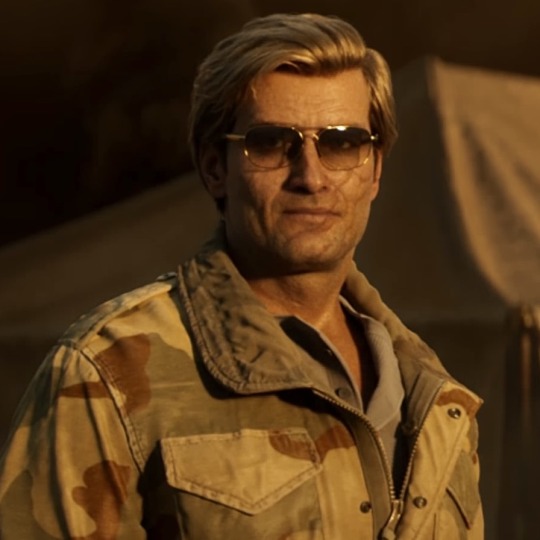
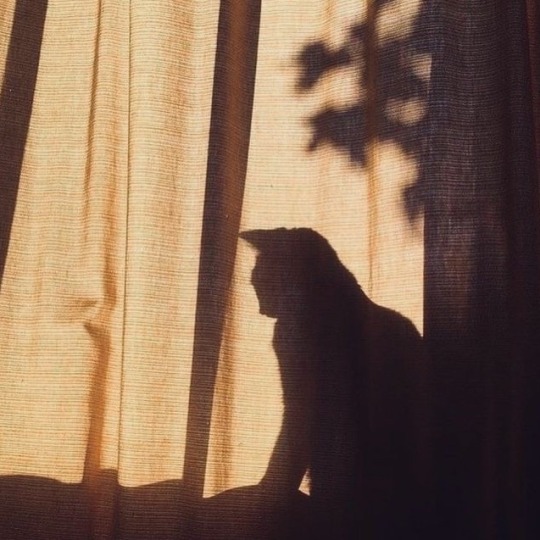
You always hear the saying that goes something along the lines of “There’s nothing more special than a boy and his dog.” and that’s the kind of relationship Adler had with his childhood dog.
He had a childhood dog that he really saw as his best friend when he was really, really young (I’d say from age 6 to about maybe age 12) like that!!! that was his buddy!!!
The breed was something pretty typical for a well to do American family at the time — like a Golden Retriever or Labrador Retriever but definitely a medium to large breed for sure.
When that dog passed he was pretty devastated and his parents decided not to get another for various reasons, but that dog left an impression on him for the rest of his life.
For the very brief period of time that he considered having a family, he always imagined a dog of a similar breed/type in the picture. It was a VERY important part of the family dynamic for him.
He and his ex-wife did end up getting a Labrador puppy, probably in a desperate bid to make her happy when things were getting rocky, but it just wasn’t the same.
He was rarely home, and barely saw either of them. It ended up becoming a sad reminder of the state of their marriage. The dog ended up providing more comfort and companionship to her than he ever did.
When they divorced, she took the dog with her and he hasn’t seen it since, but Adler still thinks of him time and hopes he had a good life with his ex.
He recognizes after his divorce that having a pet was unrealistic. He was never home, and their would be no one to take care of it. It would be unfair to subject any animal to that.
As Adler grows older though he very much comes to enjoy the company of cats, probably equal to or even more so than dogs. He appreciates their independence and the quiet company they provide.
Will definitely stop and pet stray animals if he’s not actively on a mission, but lowkey does it in secret because he doesn’t want people he’s a softie.
He’s a bit more wary of dogs though due to the fact that they get used for guard/attack work a lot, but cats? Adler will for sure stop and pet them, especially if they ask for pets!
Did I mention he becomes more of a cat guy once he gets older? Because at a certain point as much as he loves dogs he only really sees himself having a cat in his home.
There’s a lovely stray tomcat that wanders on to his property in Langley that he begrudgingly becomes pals with but he refuses to take in.
Makes a pact with the old lady next door to make sure it gets fed and taken care of when he’s not around. Even gets it neutered and vaccinated so the cat stops getting into fights with other tomcats and so he won’t catch any diseases.
Refuses to acknowledge it as his cat though (He secretly names it “Bud” or something along those lines) but also doesn’t say anything when the old lady next door calls it his cat.
Greets ‘Bud’ every time he comes home from a deployment.
Anything apart from a dog or a cat he doesn’t see himself owning. Things like birds or reptiles he honestly doesn’t entirely understand and are very high maintenance, but if he had a partner that owned either I think he’d learn to love them in his own way.
A bit weirded out by the concept of owning something like a snake or a spider, but would keep a respectful distance and diligently take care of them if asked by his partner (he values anything his partner does as if it were his own)
Is also the typical ‘I didn’t want this pet but I will become best friends with it’ guy.
I could literally talk about Adler and animals all day this is literally pandora’s box
#adler is a cat dad i said what i said#that is MY TRUTH!!!#thanks for the ask aly!!!#russell adler#call of duty#russell adler headcanons#ask#mine#headcanons
43 notes
·
View notes
Text
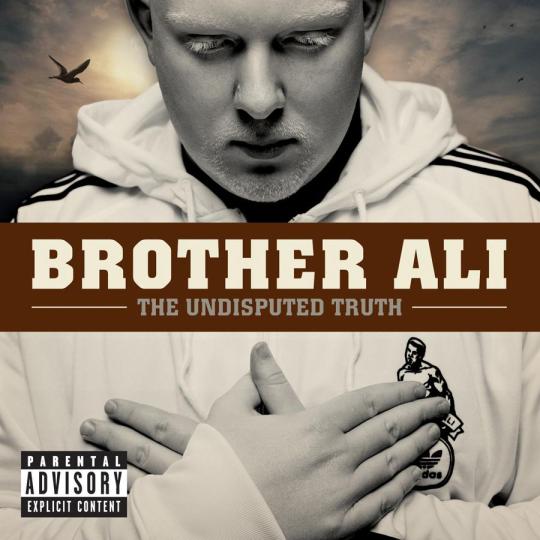
Today in Hip Hop History:
Brother Ali released his third album The Undisputed Truth April 10, 2007
#today in hip hop history#todayinhiphophistory#hiphop#hip-hop#hip hop#music#history#hip hop music#hip hop history#hip hop culture#music history#brother ali#the undisputed truth#album#emcee#mc#rap#rapper#rhymesayer#rhymesayers entertainment#2007
15 notes
·
View notes
Text
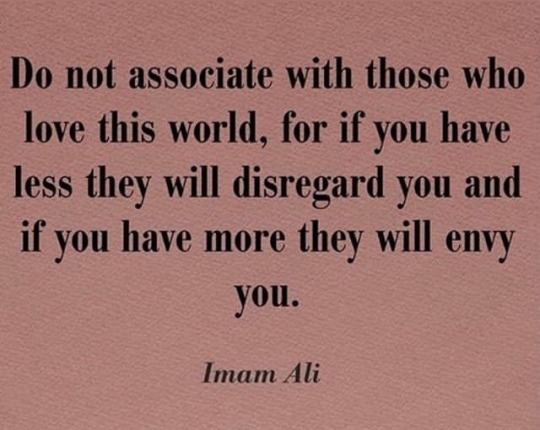
#muslim#islam#muslimah#islam help#muslimah motivation#islamic saying#islamic quote#deen#islamic#islampost#sufi#sufi wisdom#sufism#haqiqa#truth#know thyself#life#life lessons#imam ali
30 notes
·
View notes
Text
probably the nicest houseguests we’ve had in a while and it’s killing me 😭 I need them to stop being so concerned about stepping on each others feelings when it comes to the game
#bb26#like Tkor and Kimo not spilling the beans on Leah to Quinn thinking they’re sparing his feelings#when really they’re just putting Rubina at risk and not being good alies to Quinn by not telling him the truth
18 notes
·
View notes
Text
Thank you
I think we fall a little bit in love a million times a day.
The way the light falls like fading starlight. The first sip of a hot beverage on a cold morning. The silly thing our dog or cat did. Or child. The way someone laughs. Old friends. New friends. That spark of connection, wherever it begins and wherever it may lead.
There is so much beauty in the world. And so much magick. It’s easy to overlook it or dismiss it as ordinary. But there’s nothing ordinary about the thing that light us up, that make the dark diminish. And I am constantly seeking out what shines, where I find it or create it. We are all meant to be lighthouses, in the end. I believe that.
Yesterday, I made a choice to let go of the idea of something and embrace what is. Sometimes, that can be hard to do, whether it’s intentional or not. But we are often so full of longing that it won’t fit into words. And we are, in one way or another, often chasing after one spark or another. Because it’s the light that matters. That makes the darkness into something less. And there are so many ways we accomplish that for ourselves and for each other.
I think connection is one of the most important things in life. The marrow of it. It’s the whole point of this mad world. I have friends living all across the globe. I have visited some of them, but not nearly enough. If you had told that to sixteen year old me, I would’ve thought you were daft. But it’s the truth. And I know the internet can be vile, but it has also made the world into a kind of cocktail bar with books. And I love that.
I have been privileged to make incredible friends. Those friends have supported me when I needed it, cheered me on, given me advice, made me laugh, held space for me when I’ve cried—often from the bigger-on-the-inside space within my phone. Pocket friends.
I’ve said this elsewhere, but if you have supported my poetry in some way—reading it, sharing it, telling me what it meant to you—thank you. It means more to me than I can articulate, but I am grateful. And, well, ’tis the season and all that.
XO
#poetry#poem#truth#love#art#writing#poet#writer#ali trotta#grateful#thank you#pocket friends#SFF#writing community#it's a small world#sorry for the earworm#gratitude#poets on tumblr#writers and poets#poetic#poems#poetrycommunity
77 notes
·
View notes
Note
Second one is a lie. I have a weak sense of urgency and like to take my time.
I'm currently in the Philippines, where atheists are very rare (I think it's less than 1% of the population) and everyone expects you to eat rice every meal everyday. I'd leave as soon as I possibly can.
☕🧇




(Heheheheh...)
I had a friend who was born in the Philippines! She moved to Singapore and then Britain and as far as I know, she moved way up north when I was in Year 8 and I never saw her again. Either way, it would be nice to know more about the Philippines. Although I would like to know something, if that's okay. Is there something stopping you from trying anything other than rice-based foods? Like are meals like pasta, pizza, burgers etc really hard to come across? Or is it a peer pressure thing? Sorry if I'm asking too much, I'm genuinely curious.
#undertale#undertale au#undertale ask blog#skeletwins#skeletwins au#sans#papyrus#ooc#ali anne#two truths one lie
8 notes
·
View notes
Text
The Holy Prophet ﷺ told the Moors :
❝ There will be new Moors that are going to come in with their eyes wide open, seeing and knowing, that are going to take you old Moors, seat you in the back, and carry out my law. ❞
— Oral Statements & Prophecies of Noble Drew Ali
#noble drew ali#indigenous peoples#moors#moorish#moorish empire#morocco#moroccan#nationality#statehood#international law#moorish law#moroccan law#decolonization#nation building#human rights#truth#prophecies#predictions#⚖️#🗣️
9 notes
·
View notes
Text
Beautiful saying of Imam Ali ع
"How strange and foolish is man. He loses his health in gaining wealth. Then, to regain his health he wastes his wealth. He ruins his present while worrying about his future, but weeps in the future by recalling his past. He lives as though death shall never come to him, but dies in a way as if he were never born."
#imamali#hazrat ali as#hazratali#life quotes#writerblr#blogblr#writer and poets#writers on tumblr#writerscommunity#poemblr#deep quotes#deep words#english writing#english#fav#lit#literature#wisdom#sayings#spilled truth#spilled ink#relateable#spilled thoughts#bookblr#book quotes#امام حسين#امام علی#imam husayn#muslimquotes#true quotes
26 notes
·
View notes
Text
You know who traditionally does poorly on standardized tests? Women and marginalized individuals. It’s a self-fulfilling prophecy: groups that are constantly told by society that they’re less smart walk into a testing situation anxious as hell and end up underperforming. It’s called Stereotype Threat, and there’s tons of literature on that. Just like there’s tons of literature showing that the GRE does a terrible job at predicting who’ll finish grad school. But the heads of graduate admission all over the country don’t care and persist in using an instrument made to elevate rich white men.
— Ali Hazelwood, Love on the Brain
#quotes#books#literature#book quotes#literary quotes#truth#contemporary romance#ali hazelwood#love on the brain
47 notes
·
View notes
Text
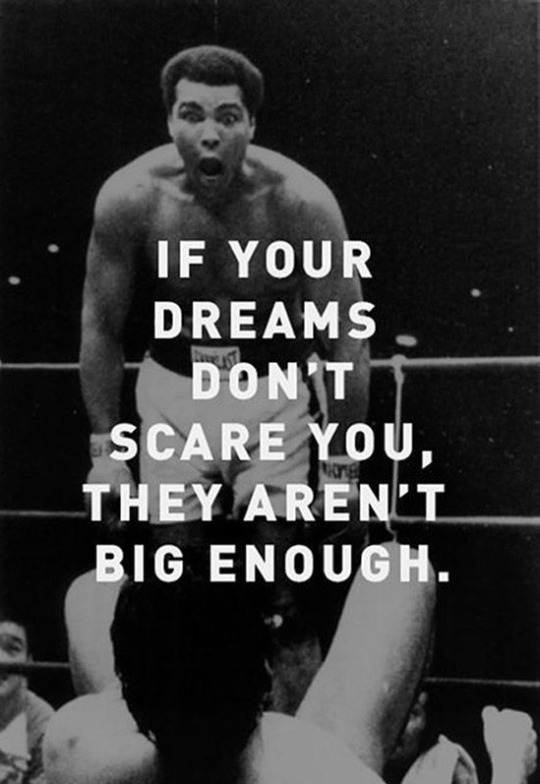
Day 5.
3 notes
·
View notes
Text
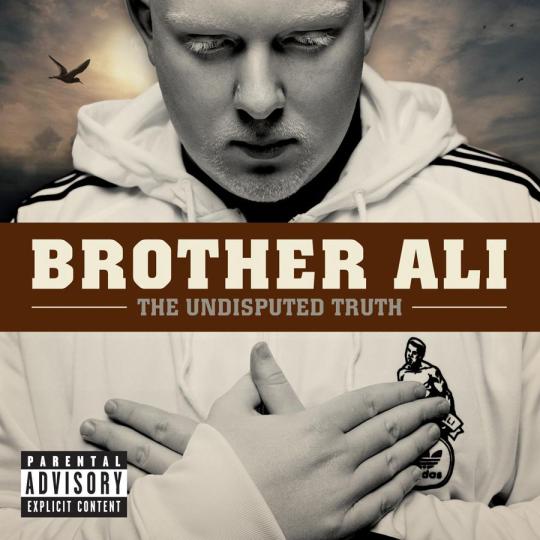
Today in Hip Hop History:
Brother Ali released his third album The Undisputed Truth April 10, 2007
#today in hip hop history#todayinhiphophistory#hiphop#hip-hop#hip hop#music#history#hip hop music#hip hop history#hip hop culture#music history#brother ali#the undisputed truth#album#emcee#mc#rap#rapper#rhymesayer#rhymesayers entertainment#2007
31 notes
·
View notes
Text

By: Alex O'Connor
Published: Jun 19, 2024
In the apocryphal Gospel of Thomas, Jesus condemns those who “(either) love the tree and hate its fruit (or) love the fruit and hate the tree”. A regular critique of the nominally religious is that they claim to believe in, say, Christianity, but fail to act in accordance with its demanding message of love and compassion. They love the tree, but can’t quite swallow the fruit. More recently, however, a strange reverse phenomenon is emerging: a class of thinkers who, unable to rationally assent to the actual truth of Christianity, and yet disillusioned with the politics of “new atheism”, and fearful of the various religious and pseudo-religious ideas that have filled the vacuum it created, find themselves in the tough spot of being hungry for the fruit but unable to believe in the existence of the tree.
These so-called “cultural Christians” are appearing in droves: Douglas Murray, Tom Holland (not that one), Konstantin Kisin, Jordan Peterson (depending on what you mean by “Christian” and “cultural” and “and”); even Richard Dawkins — the archetypal modern atheist who has done more to confront organised religion than perhaps any other identifiable person in a generation — happily adopts this paradoxical moniker for himself.
Paradoxical because, of course, Christianity is more than just an affinity for evensong, disappointment with secular architecture, and suspicion of Islam. St Paul wrote in no uncertain terms to the Corinthians that “if Christ has not been raised, our preaching is useless and so is your faith”, and the vague, à la carte approach to the religion displayed by the “cultural Christian” which doesn’t seem to care about, much less affirm, the historicity of the extraordinary events of Easter Sunday is the kind of attitude that would see you condemned as heretical by the founders of the orthodox church.
Yet Christianity is experiencing a popular makeover, from an affirmative doctrine of truth-claims to a sort of protective garment to be worn as a practical measure against the equal and opposite destabilising forces of radical political religiosity and cynical nihilism which continue to claw away at the souls of those without a firm spiritual conviction.
This metamorphosis of the Christian religion in is many ways indebted to Tom Holland — not the actor, though perhaps an actor, in that he seems content to live as if Christianity were true — whose “Dominion” thesis has convinced a not insignificant number of intellectuals that the bulk of our celebrated Western ethics is ultimately the product of Christianity, an ideology which has so successfully embedded itself in our culture that we do not even notice it anymore.
This leads our cultural Christians, often those with a special interest in safeguarding Western civilisation, to cozy up to an ideology that they can’t quite adopt without qualification due to their rather inconvenient conviction that it isn’t true.
Enter Ayaan Hirsi Ali. Re-enter, I should say, as this brave apostate from Islam won successful prominence as an atheist writer and speaker for many years since the early 2000s, before recently announcing that she had embraced Christianity. Indeed, she had originally been scheduled to participate in that famed discussion in Washington D.C. in 2007 which gave birth to the “four horsemen” of new atheism — Richard Dawkins, Christopher Hitchens, Daniel Dennett, and Sam Harris. So news of the “almost fifth’s” conversion was met with widespread surprise, joy, and speculation.
Perhaps the most widely read response came from Dawkins, in an open letter whose first sentence contained a rather less than charitable: “Seriously, Ayaan? You, a Christian? You are no more Christian than I am.”
Why? Because Hirsi Ali’s article, while passionate and detailed, suffered from the exclusion of anything resembling an argument for the existence of God, or for the theological supremacy of the Christian religion over others (or even over atheism). Instead, it is a political treatise: it begins with her experiences as a Muslim, touching on 9/11, the Muslim Brotherhood, and antisemitism, before asking: “So, what changed? Why do I call myself a Christian now?”
She answers: “Part of the answer is global. Western civilisation is under threat from three different but related forces,” which she identifies as Russian/Chinese authoritarianism, Islamism, and wokeism. All of which are distinctly political considerations and so hardly serve as a theological defence of Christianity. Then, referring to Tom Holland, she tells us that the “story of the West” is a civilisation built on the “Judeo-Christian tradition”. That is to say, she is ticking all the boxes of a merely cultural Christian.
“Strangely, then, they could find initial agreement on one point: their being just as Christian as each other.”
Yet she later writes, as if anticipating this objection, “I would not be truthful if I attributed my embrace of Christianity solely to the realisation that atheism is too weak and divisive a doctrine to fortify us against our menacing foes.” It’s a promising interjection, which seems to ready us for an apolitical testimony that might justify her exclusion of the “cultural” in labelling her new Christian identity.
Here, Hirsi Ali begins to describe her personal struggles as an atheist. “I have… found life without any spiritual solace unendurable,” she writes, claiming that the “God hole” left behind after her deconversion was not filled with reason and intelligent humanism, as atheists like Betrand Russell had predicted, but instead left painfully vacant.
“In this nihilistic vacuum, the challenge before us becomes civilisational,” she continues. “We can’t withstand China, Russia and Iran if we can’t explain to our populations why it matters that we do.” In explaining, then, her reasons for becoming Christian apart from her desire to defeat her political foes, she tells us that she was struggling with a nihilistic vacuum that was… insufficient for defeating her political foes. Once again, the motivation seems political.
Thus Richard Dawkins and his assessment, “you are no more a Christian than I am”. The funny thing is, Ayaan Hirsi Ali endorses this sentiment. Dawkins has, of late, been airing his misgivings about gender theorists and Islamists, and constantly reaffirms his admiration for Christian art, architecture and music. These political and aesthetic preferences inspired her to refer to Dawkins at one point as one of “the most Christian” people that she knows. Strangely, then, they could find initial agreement on one point: their being just as Christian as each other.
This uneasy equilibrium provided the mise en scène for an eagerly awaited conversation between the two, which took place in Brooklyn last month. Dawkins tells us at one point that he showed up fully prepared to explain to Hirsi Ali why she is not a Christian: “The idea,” he says, “that the Universe has lurking beneath it an intelligence a supernatural intelligence that invented the laws of physics it invented mathematics […] is a stupendous idea (if it’s true) and to me that simply dwarfs all talk of nobility and morality and comfort and that sort of thing.”
He was, therefore, taken quite unawares, as were many of us, when he asked (or rather told) her, “You don’t believe Jesus rose from the dead, surely?” and she confidently replied, “I choose to believe that Jesus rose from the dead. And that is a matter of choice.” This, for Dawkins (as for me), changes the game. While throughout the event she had no hesitation in repeating her political grievances, in New York, she finally addressed the truth claims of Christianity, and appeared to confess a belief in them. “I came here prepared to persuade you, Ayaan, you’re not a Christian,” Dawkins told her, before correcting himself: “I think you are a Christian,” and — being Richard Dawkins — he added, “and I think Christianity is nonsense.”
This extraordinary event began with Hirsi Ali recounting her conversion: “I lived for about a decade with intense depression and anxiety self-loathing. I hit rock bottom. I went to a place where I actually didn’t want to live anymore but wasn’t brave enough to take my own life.” Through prayer, she managed to escape that hole. “My zest for life is back,” she declared to a healthy applause, indicative of the one thing that everyone can agree on: it is wonderful to hear that Ayaan is happy again.
She looked at Dawkins and shrugged slightly as she finished her personal account. And the audience laughed. I did think there was something comical about following such a moving story of escape from depression and anxiety with, as Dawkins did: “But do you really think Jesus was born of a virgin?” Dawkins, though, can hardly be blamed: as touching as Hirsi Ali’s story may be, if he is right that God’s existence is a scientific question, then we should remember that bringing personal narrative into the laboratory is as inappropriate an approach as bringing a microscope into a poetry seminar. It should be no insult to say that her emotional struggles are irrelevant to the question of theism vs atheism.
As Dawkins himself put it, responding to Hirsi Ali’s fear that an atheistic universe doesn’t offer us any way to connect with each other and the cosmos: “Suppose it were true that atheism doesn’t offer anything. So what? why should it offer anything?” Further applause.
“Faith offers you something, obviously. That’s very very very clear,” he says at one point. “But it doesn’t make it true. It doesn’t make the existence claims of Christianity true.” Again, there was an applause. Given that such a claim is hardly extraordinary or controversial, the clapping seemed to be less in support of the point, and more of Dawkins’s willingness to make it plain.
It is worth remembering that believing something for non-rational reasons is not unusual. Our beliefs are quite often formed by our surrounding environment, rather than some kind of perfect logic and analysis of abstract syllogisms. Most people know this. Hirsi Ali is happy to admit it. You may think it imperfect, but it is not unique.
“The kind of Christianity adopted by Hirsi Ali goes further in asserting its truth, but not very much further in its justification.”
This extraordinary event began with Hirsi Ali recounting her conversion: “I lived for about a decade with intense depression and anxiety self-loathing. I hit rock bottom. I went to a place where I actually didn’t want to live anymore but wasn’t brave enough to take my own life.” Through prayer, she managed to escape that hole. “My zest for life is back,” she declared to a healthy applause, indicative of the one thing that everyone can agree on: it is good to hear that she is happy again.
After finishing this personal narrative, she could only look at Dawkins and shrug slightly. The audience laughed, in anticipation of something of a shift in tone. I did think there was something comical about following such a moving story of escape from depression and anxiety with, “But do you really think Jesus was born of a virgin?” Dawkins’s decision to do so, however, can hardly be blamed: as touching as his former colleague’s story may be, if he is right that God’s existence is a scientific question, then we should remember that bringing personal narrative into the laboratory is as inappropriate an approach as bringing a microscope into a poetry seminar. It should be no more an insult to say that Hirsi Ali’s emotional struggles are irrelevant to the question of God’s existence than it would be to say to say that scientific observations are irrelevant to the study of Keats.
As Dawkins himself put it, responding to her fear that an atheistic universe doesn’t offer us any way to connect with each other and the cosmos: “Suppose it were true that atheism doesn’t offer anything. So what? Why should it offer anything?” Further applause.
“Faith offers you something, obviously. That’s very, very, very clear,” he says at one point. “But it doesn’t make it true. It doesn’t make the existence claims of Christianity true.” More clapping. Given that such a claim is hardly extraordinary or controversial, this reception seemed to be less in support of the point, and more of Dawkins’s willingness to make it plain.
Yet it is worth remembering that believing something for non-rational reasons is not unusual. Our beliefs are quite often formed by our surrounding environment, rather than some kind of perfect logic and analysis of abstract syllogisms. Most people know this. Ayaan Hirsi Ali is happy to admit it. You may think it imperfect, but it is not unique to her.
This means that any surge in Christian interest we may notice among our public intellectuals is unlikely to be due to a renewed interest in Biblical scholarship or the figure of the crucified Nazarene. It is instead likely a product of their environment. Cultural Christianity, then, is in many ways a political movement disguised as a religious one, reacting not to arguments for God’s existence, but concerns about the practical shortcomings of atheism and alternative religions. The kind of Christianity adopted by Hirsi Ali goes further in asserting its truth, but not very much further in its justification.
Therefore, those celebrating some alleged resurgence of Christianity ought be cautious: it would certainly be a happy day for them if their favourite intellectuals began discovering a relationship with Jesus, but if they begin converting to Christianity principally as an ideological bulwark, we may witness the return not of a meek and mild community of believers, but of a more strong-armed, aggressive Christianity that has historically been a touch more controversial.
But Ayaan does seem genuinely transformed by her new faith: she looks happy, speaks humbly, and seems genuinely uninterested in point-scoring or winning any arguments. It troubles me not at all to admit that I found myself applauding her more than Richard Dawkins. It transpired in Brooklyn that her conversion, which at first appeared mostly political, was more a result of her personal battle with nihilism. This is hardly going to convince anybody else to become Christian, but such personal experience isn’t ever supposed to.
Atheists are often told that they are plagued with a “God-shaped hole”. Hirsi Ali appears to have developed for herself a hole-shaped God. But despite the probability of at least an element of motivated reasoning in this conversion, I’m genuinely happy for her. We should keep in mind, too, as her story evolves, that our ideas are the most unclear to us when they are new, and Ayaan is a new Christian. While we are all trying to work out what she really believes, she is probably trying to work out the same thing. She, however, has the unusual courage to do it out loud.
==
In short, Xianity has retreated even further from "my religion is true" to "my religion is useful." Of course, if that's the case, then I have just as much right to pick and choose the parts that are useful to me as anyone else.
We must also apparently address once again the absurd notion of "choosing to believe," usually levelled at atheists as an accusation that they simply choose not to believe. In one specific god, of course. An accusation that necessarily means the believer themselves "chooses" not to believe in all the other gods.
And its absurdity revealed by the challenge to choose to believe in goblins or fairies or Bigfoot. Or to choose to believe in another god - Ahura Mazda, for example - for five minutes.

It matters what's true. And Xianity isn't true.
#Alex O'Connor#political christianity#god shaped hole#hole shaped god#choose to believe#christianity#Ayaan Hirsi Ali#Richard Dawkins#truth#truth matters#cultural christianity#religion#religion is a mental illness
15 notes
·
View notes
Text
@devilsmenu for Ali for the event starter
"I didn't know anyone else was in this exhibit." Dandelion was going to explore, get a breather before he can drape across his date. "I can leave if you want to be alone."

#Did you know I caught an arrow with my own hand? It’s the truth I swear! (Jaskier interacts)#hwevent19#devilsmenu#muse: ali
3 notes
·
View notes
Text




Truth or Dare (2018)
#Truth or Dare 2018#Lucy Hale#eye contact //#scopophobia //#2010s#2018#Jeff Wadlow#body image //#Sophia Ali
6 notes
·
View notes
Text
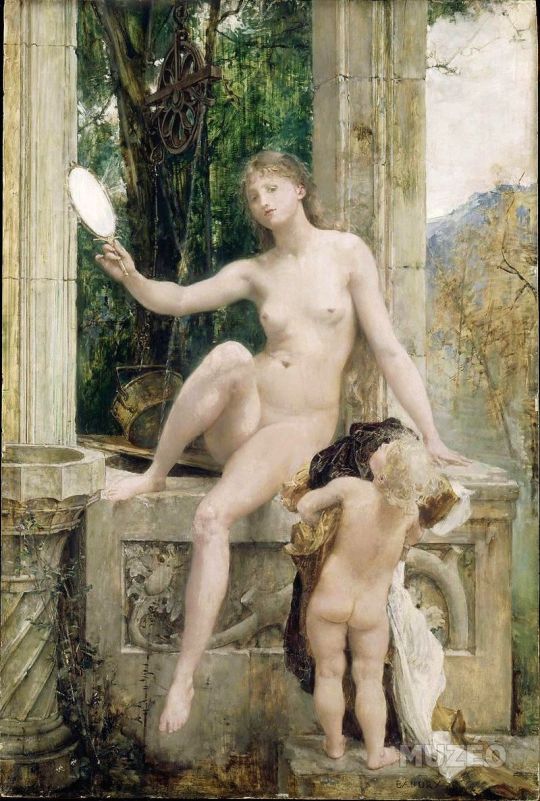
Loin derrière est l’âge de raison Et avec raison: tu as huit ans. Mais ce n’est qu’un début de saison. Sens-les tous, les parfums de printemps!
Emplis-toi de sa vie, ses idylles, Avant qu’avec l’automne tu saignes! Revêts ses rayons avant que file Le temps. Nue, la Vérité se baigne.
Car le vécu, de sa grande faux, Des illusions chaque âme arrache. Dans la gomme balloune, est-il faux De dire qu’un Gom Jabbar se cache?
Un jour, des uniformes rayés, Tu verras les nuances de gris. Je plaide coupable. Un prisonnier, Par des lions, pour zèbre est-il pris?
Je plais. Deux coupables ont pour grotte Mes farces tel mon âge : dix-neuf. Là, Platon et Ali Baba rotent. L’un a volé l’œuf; l’autre, le bœuf.
Quoi, je mens? Max est monté au ciel En avion, aller sans retour. Aux champs Élysées est son hôtel. Où ça? Dans la ville de l’amour.
Voilà, je raconte des histoires De chewing-gums, félins et méchants. L’on est enfant tant qu’on peut y croire, Que seul le lait est « meilleur avant ».
Dis-moi, quel est le but de la vie? Tu dis : « Grandir jusqu’au bout, survivre. » Va de l’avant! Au gré des envies… « N’est-ce pas pour ça qu’on naît, pour vivre? »
-Poésie: extrait de "À Danielle", à lire dans "Genèse d'une femme" par Marine Mariposa, disponible gratuitement sur https://sites.google.com/view/papillondusublime/gen%C3%A8se-dune-femme -Image: ''La Vérité'', Paul Baudry
#poetry#poesie#french literature#marine mariposa#printemps#spring#time passing#truth#verite#gom jabbar#coupable#prison#platonic#ali baba and the forty thieves#champs elysees#enfants#inner child#childhood#children#meaning of life#survivre#vivre
2 notes
·
View notes